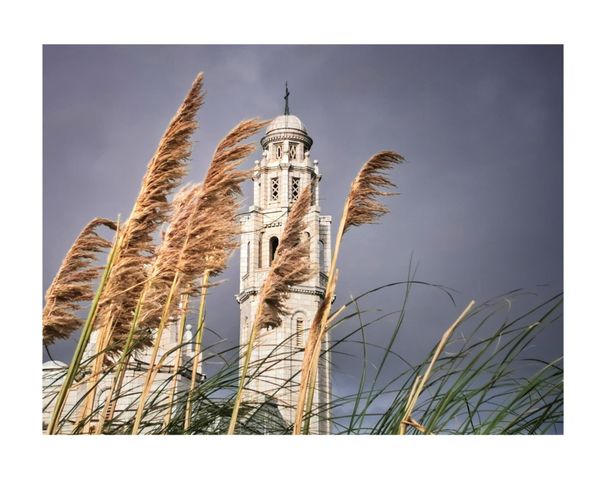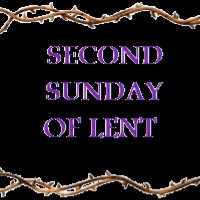Prayers of Approach
We bring ourselves to God, whatever our age and gifts. We prepare to share in worship, giving thanks for all that God shares with us. Let us open our hearts and minds to know more of God’s unconditional love and care and be ready to share it with others.
Lord of all creation, giver of life, we offer ourselves to you. Teach us how to give ourselves to others, generously and wholeheartedly, sharing who we are and what we have. May we learn to share all the world’s resources, so that everyone has enough of the good things that you provide. May we all rejoice in your goodness. Amen.
God, our generous provider, as the young boy offered all he had to Jesus – five loaves and two small fish – we come today offering you everything we have: a pocketful of faith, a bit of time, ourselves, our gifts, our talents. And we know that, however small our gift or offering, you will do amazing things with it, far more than we can ever hope, believe or imagine. Thank you, awesome God. Amen.
Hymn Guide me O thou great Jehovah/redeemer (R&S 345)
Readings: 2Kings 4:42-44
John 6:1-21
Introduction
The Old Testament reading demonstrates God’s power to feed the hungry, foreshadowing the miraculous feeding recounted in today’s Gospel reading. Both Elisha and Jesus lived in difficult times, when war or drought often led to famine. Elisha’s is a tiny story of hospitality; he is given food and he gives it away. If Elisha had kept it, it would have been food for a couple of days; but by giving it away, God was able to multiply it. These readings reveal God’s practical compassion for his people, especially the poor who are always most affected by hardship.
A large crowd has been closely following Jesus, and Jesus questions his disciples as to how they will provide hospitality to the horde. Andrew, one of Jesus’ disciples, brings a young boy’s small offering to Jesus, unsure of how a trivial contribution could be used. Jesus takes the offering, thanks God for it and feeds about five thousand people – with 12 baskets left over. When a boy gives his picnic to Jesus, everyone is blessed by God’s sharing economy. We bring; God multiplies; all receive – whoever we are!
Hymn Seek ye first the kingdom of God (R&S 512)
Sermon
The themes of famine and sickness rumble ominously through the stories of Elijah and Elisha. Both prophets lived at a time of political instability, and survival was tough. Today’s story ends a series of accounts of Elisha’s miraculous power to overcome these difficulties and offer people the food and health they need, cementing his claim to be Elijah’s successor.
Barley was the earliest grain to be harvested, and this first-fruit offering marks the end of the annual struggle to survive winter’s dearth. But twenty small loaves would not have gone far towards satisfying the hunger of a hundred people. This meal, however, transcends the everyday need for food. Elisha’s brief dialogue with Gehazi, his servant, emphasises the impossible character of this event and shows Gehazi’s anxiety about doing what he was asked. It is the transformative word of the Lord that makes the miracle possible, and some scholars describe the meal as sacramental because of the creative role played by God’s word.
John sets his telling of the story of the feeding of the 5000 close to Passover time thereby giving hints to his readers (who already know Jesus’ identity) of the sacramental nature of the feeding, which he describes as a ‘sign’. The bread in this story too is barley loaves which makes sense as it would be ready to harvest around this time of year. Although the story is told in all four of the gospels (the only miracle apart from the resurrection to feature in all of them) we already get a sense of the difference in emphasis which John affords it.
John always refers to Jesus’ miracles as ‘signs’ which point us towards God and reveal Jesus’ identity. The crowds follow Jesus because of the signs that he has been doing, even trailing him around the lake and up the mountain. John however doesn’t say anything about Jesus teaching them or about the lateness of the hour. He simply records Jesus’ challenge to his disciples, ‘where can we buy bread for them to eat?’ You can almost feel the disciples alarm, it would take 6 months wages to buy enough bread, even if there was somewhere to buy it! Then Andrew brings the boy with the loaves and fishes to him.
John is the only gospel writer to mention the boy, the others imply that the disciples had the food. Perhaps this too is a challenge, not just to the disciples but to John’s readers, those early Christians struggling against hardship, injustice and persecution, giving a lesson in generosity and sharing which benefits all in ways far beyond what could have been imagined. It is a lesson for us today also, in a world of inequality unconditional generosity results in abundant blessing for both those who give and those who receive. As the school holidays begin it is forecast that the demand for food from foodbanks will increase dramatically as those families that rely on free school meals will need to find other sources of food for their children. And it is a common problem around the world for those in war torn or famine hit areas.
So, what about us? What in our lives can we offer to God that he can take and use? Even if what we have seems so insignificant that it can’t possibly make a difference think of Andrew who nevertheless brought the boy and his offering to Jesus. We don’t need to know the answers, we don’t need to know how, we just need to have faith that what we bring God will multiply.
Hymn Jesus the Lord says, ‘I am the bread’ (R&S 199)
Prayers of Thanksgiving and Intercession
Thank you, Lord, that you go ahead of us into our communities; you are there pouring out your generosity and your hospitality in our neighbourhood. Thank you that as you are transforming our homes, our streets, our schools, our places of work, you are transforming us so we can play our part. Thank you that we can come together as one, sharing all that you have given us.
Lord, help us to remain thankful for even the simple things. Keep us focused on your loving, generous nature, so that we can freely share what we have and who we are. Let us be cheerful givers and humble receivers, that all may have enough and be satisfied.
Lord Jesus, as you met the needs of the five thousand so we pray for those in need today: for those in need of food and water – we pray abundance; for those in need of healing – we pray courage; for those in need of peace – we pray reconciliation; for those in need of encouragement – we pray hope; for those in need of freedom – we pray release; for those in need of companionship – we pray friendship; for those in need of change – we pray opportunity; for those in need of forgiveness – we pray mercy; for those in need of your love – we pray blessing. Amen.
Hymn Praise and thanksgiving, Father we offer (R&S 48)
Blessing
Caring God, we ask you to be with us this week. Open our eyes to see people as you see them, make us a blessing to all who are affected by our choices, whether they are right in front of us or far away. Help us to live by the values of your kingdom, which is fair and just, and to value all people as made in your image.
May God the Father, Jesus the Son, and the Holy Spirit strengthen, sustain and empower us in our hearts, in our homes and in our community, today and always. Amen
Prayers and other material (adapted) © Roots for Churches Ltd. Used by permission.






